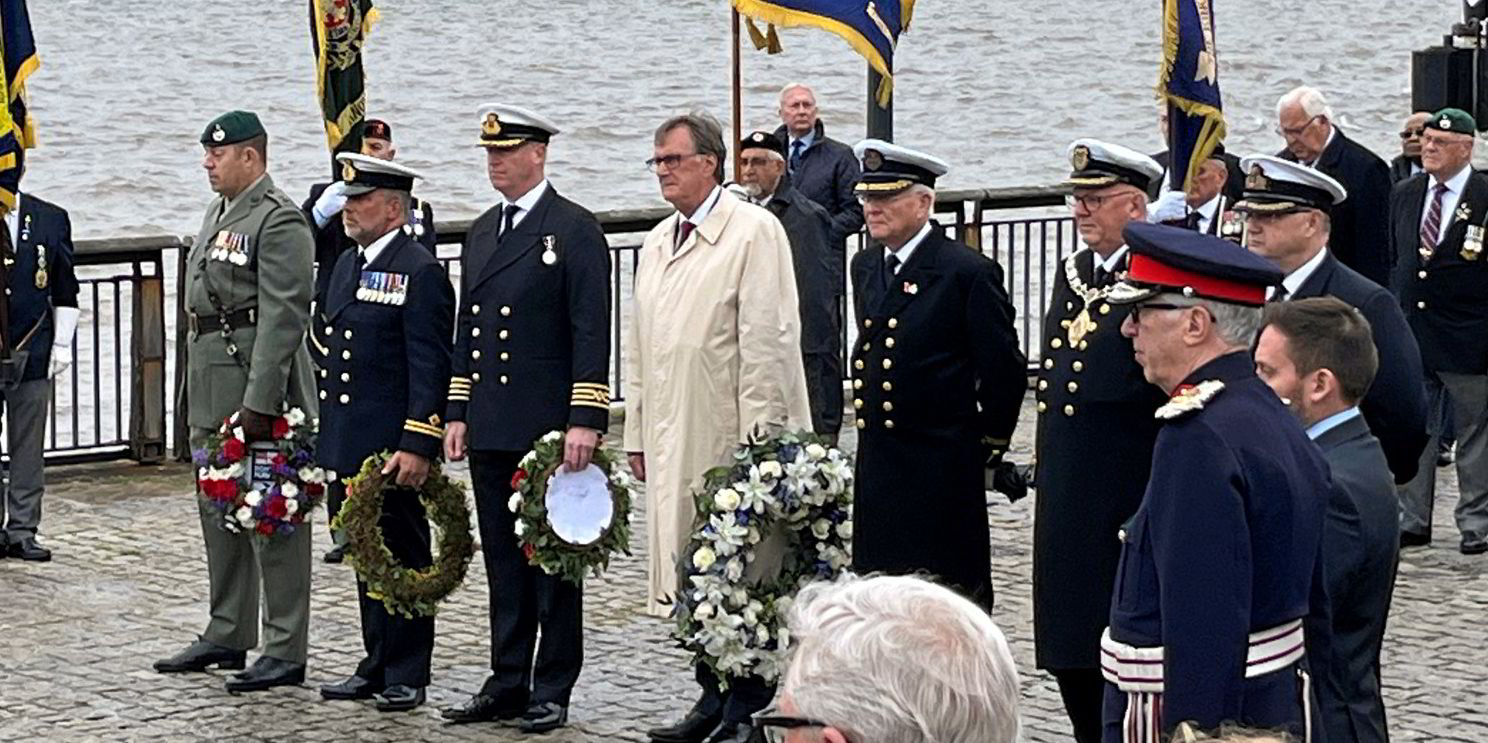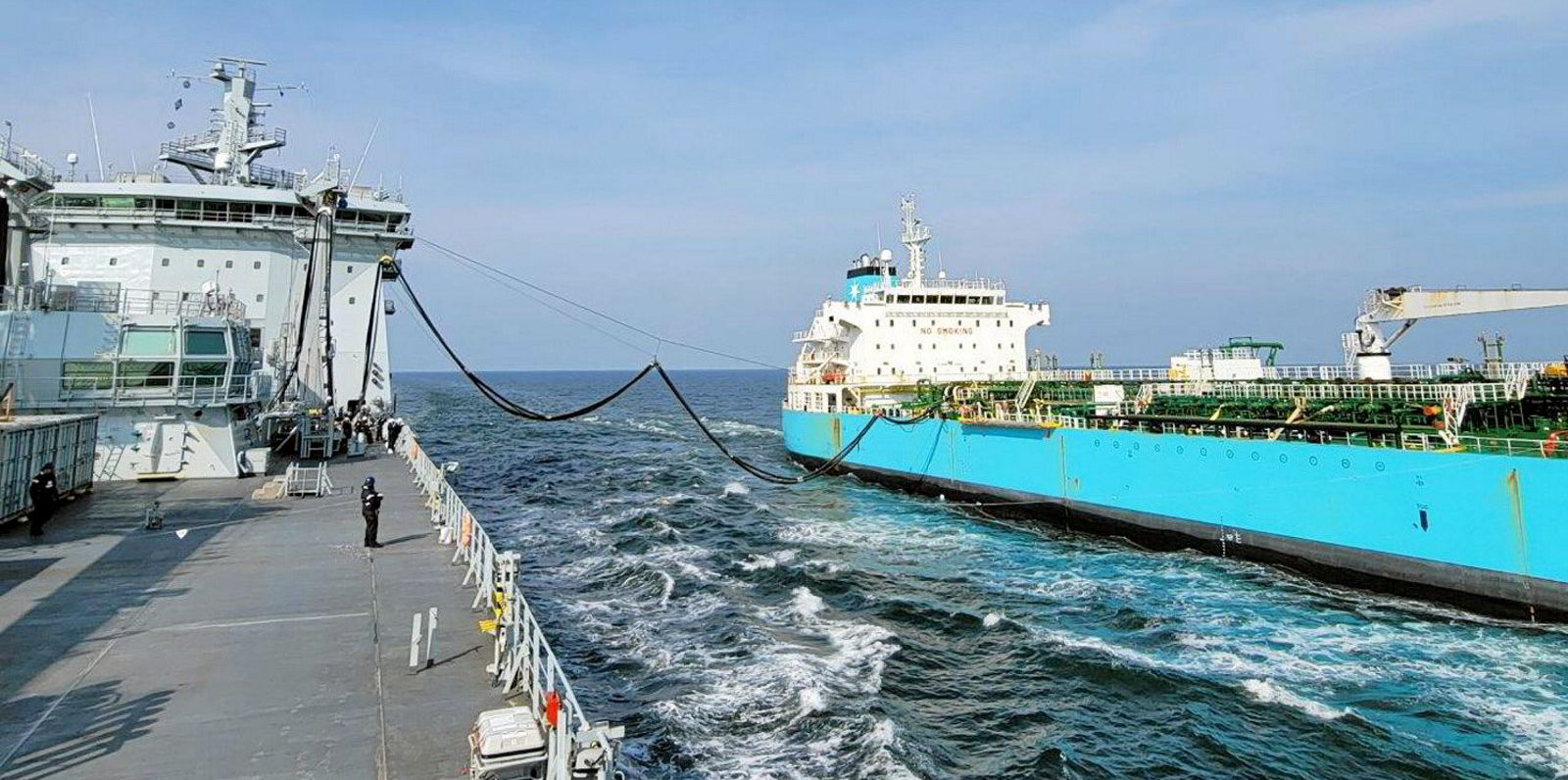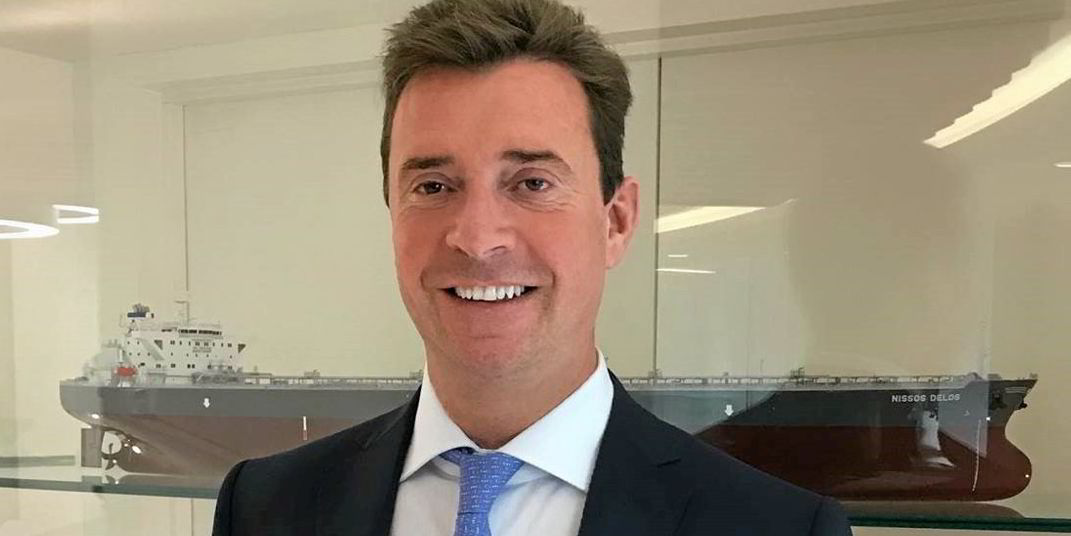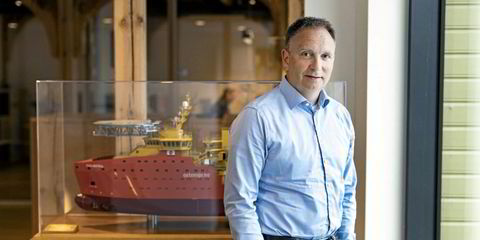Atlantic Container Line (ACL) and Cunard marked the 40th anniversary this week of the sinking of the ro-ro Atlantic Conveyor during the Falklands conflict.
Just before sunset on 25 May 1982, the Liverpool-registered vessel, which had been requisitioned by the UK government, was struck amidships by an Argentinian Exocet missile and a fierce fire broke out.
The evacuation of the vessel took about 15 minutes. Most of the survivors were rescued by Royal Navy helicopters and other task force vessels.
Twelve crew members lost their lives out of a crew of 33. A further 126 service personnel are estimated to have been on board at the time.
To mark the event, a wreath-laying ceremony was held at the Merchant Navy Memorial on Liverpool’s Pier Head followed by a service of remembrance at St Nicholas Church, whose gardens include a memorial to the vessel.
The Atlantic Conveyor became the first British merchant ship to be lost to enemy fire since World War II. Its captain, 57-year-old Ian North, was one of the last to leave the ship and was among those who died.
He was posthumously awarded the Distinguished Service Cross for his actions, which are said to have helped save many lives.
Six ACL/Cunard merchant seamen, including Captain North, died. Three Royal Navy personnel and three Royal Fleet Auxiliary crew also perished.
The fire raged on board the vessel for several days. The ship was connected to a salvage tug in the hope of towing it back to the UK, but it sank three days after being hit.
Sistership the Atlantic Causeway was also deployed in the Falklands Task Force and completed her mission safely.
Andrew J Abbott, chief executive of ACL, said: “I boarded the Atlantic Conveyor many times during the late Seventies while she was berthed in New York for cargo operations.
“I had the distinct pleasure of meeting Captain North on multiple occasions for ship parties and staff training sessions.
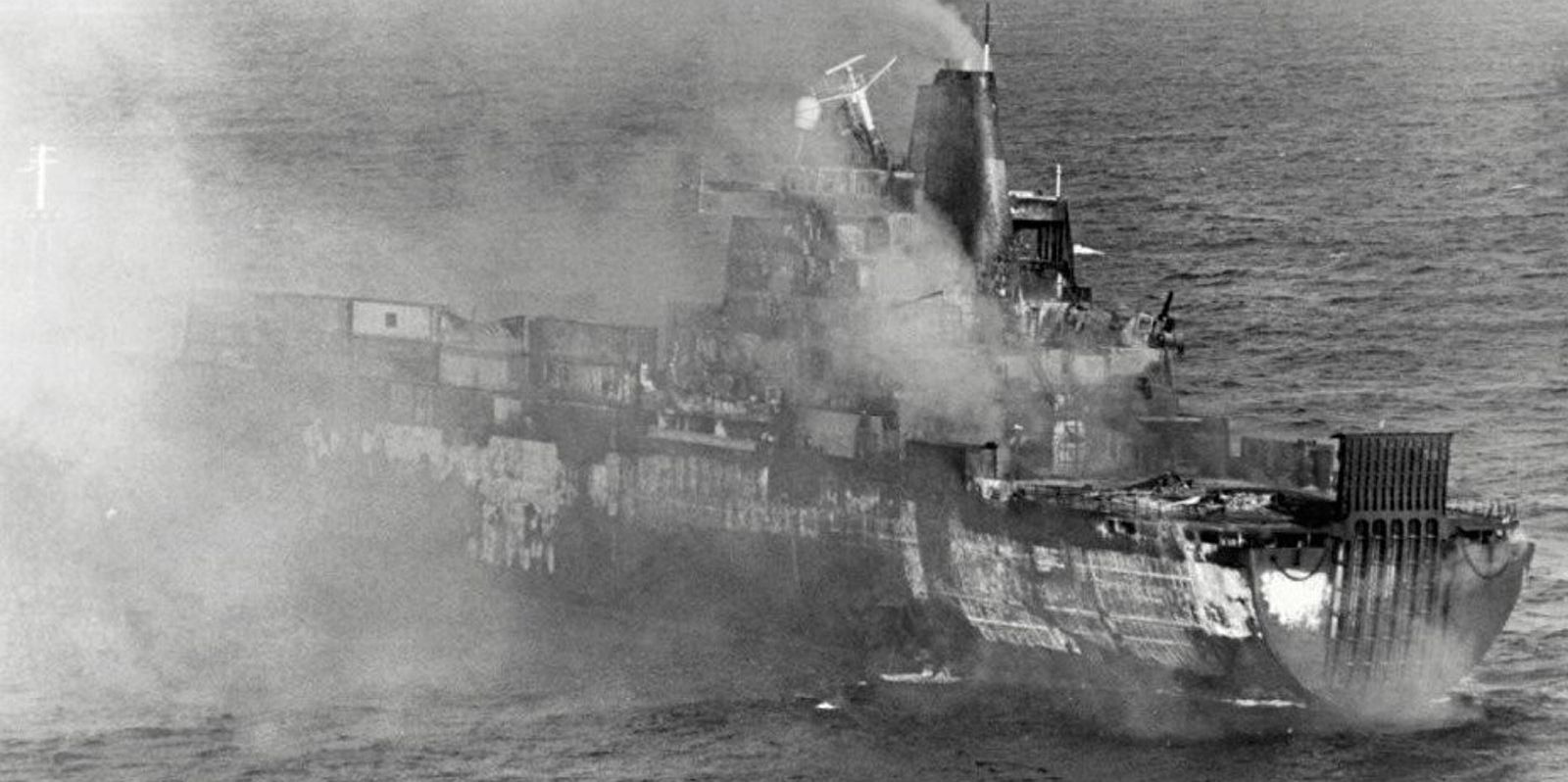
“He was the quintessential British sea captain: an expert on every aspect of his ship, close to all of his officers and crew, always helpful, always witty, always professional.”
Abbott remembers the shock he felt the day he learned that the Atlantic Conveyor had gone down and lost several of its crew.
“It is one thing to read about events in history books, but the impact is different when you knew the people and walked the ship,” he said.
“Let us always remember and honour these brave men who lost their lives 40 years ago. Their country called and they answered. May they rest in peace.”
Cunard senior vice president Angus Struthers said: “Our ships, and their crews who volunteered to sail on them as part of the South Atlantic Task Force 40 years ago, played a significant part in the Falklands campaign.
“It is entirely fitting that we return to the Conveyor’s homeport, and Cunard’s spiritual home at Liverpool, to mark this important anniversary of lives lost.”
Dr Gordon Brooks, former medical officer on the Atlantic Conveyor, said: “On this anniversary, I remember those I tried to save, the heroes who didn’t return, and my thoughts go out to those who still carry the burden of what befell them all those years ago.”
Brooks said that although the Atlantic Conveyor was requisitioned to transport fighter aircraft to the front line, planners soon saw the potential for trying something new.
“By the time her brave volunteer merchant crew took her out of Plymouth with a tri-service military party on board, she’d been transformed into a makeshift merchant aircraft carrier, stuffed with stores and munitions, that could refuel, arm, launch, recover and repair rotary and fixed-wing aircraft,” he said.
“Despite the myriad problems resulting from her breakneck conversion, her two crews worked together with humour, initiative and resilience to solve them right through to the final conflagration and misery of her abandonment. It was my privilege and honour to serve alongside such men.”
At the time of the attack, ACL was made up of a consortium comprising Cunard Steamship Co, Wallenius Lines, Swedish America Line, the Transatlantic Steamship Co Ltd, Holland America Line and Compagnie Generale Transatlantique.
Today, ACL has evolved into a separate stand-alone shipping line and is no longer a consortium.
